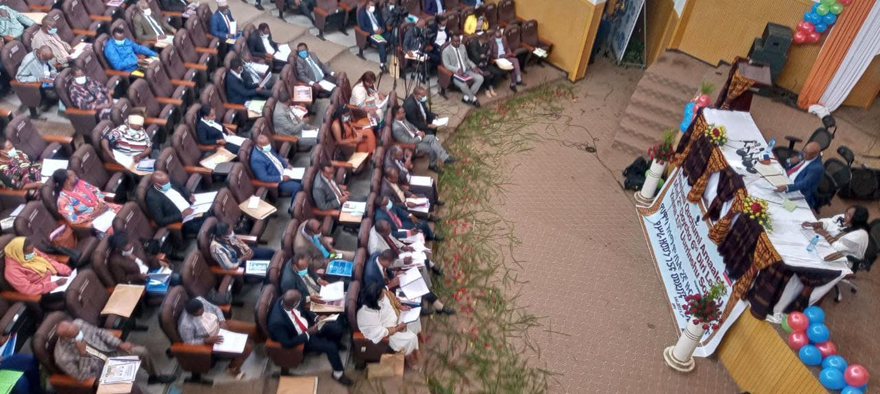
According to the analysis of Jerusalem Children and Community Development (JeCCDO), a local CSO, the city of Hawassa has limited community engagement and suffers from a shortage in basic services delivery. JeCCDO’s assessment was carried out by key stakeholders who concluded that the role of community structures should be expanded to empower community members and improve the effectiveness and sustainability of development and governance processes.
Over the last eighteen months, a Social Accountability Council (SAC) was established and strengthened to bridge gaps, improve community efficiency, and increase the effectiveness of service delivery. The SAC in Hawassa city conducted field visits to assess seven service delivery institutes, including three health centers, three schools, and one water and sanitation department.
The officials of these institutes acknowledged their shortcomings and requested the city administration's assistance in addressing them. The SAC assessment had a positive impact on the preparation of a budget presentation event by the city's Bureau of Finance and Economic Development (BOFED). In fact, it was a major determinant in the award of additional budgets - 20 million ETB for education, and 2 million ETB for health.
However, the SAC still had concerns over the remaining service delivery gapss. For example, the Department of Water has requested an 80 million ETB budget to replace the city's depreciated pipeline in the central areas. In recognition of this effort, JeCCDO was invited to the General Assembly of Hawassa City's Administrative Council.
Following budget approval, three departments and SAC representatives prepared a joint quarterly action plan, which was then implemented. These steps are being taken in collaboration with government representatives. The SAC is also preparing to become a silent member of the city’s administrative council. As a result, improvements have been made in customer services and the complaint hearing process.
Although there is still much work to be done, the SAC has achieved results that most civil society organisations would believe to be unattainable, as evidenced by being the first to be invited by the city administration to participate in a budget approval event. Currently, SAC members have their own offices, have developed their Memorandums of Understanding, reform agendas, and action plans. They continue to work according to the plan, identifying and filling gaps, and monitoring with CBOs, such as Idir (grassroots, community-based) associations, youth associations, and religious leaders. The SAC will be expected to strengthen its capacity to achieve even more results in the coming period by maintaining its collaboration with government bodies and the community, continuing to work on the joint action plans, and organising update meetings.
All the above activities have been implemented through JeCCDO’s project entitled, “Initiative to support democratic governance and peaceful co-existence in Ethiopia,” which is funded by the European Union’s Civil Society Fund programme (EU- CSF III). The project will achieve the objective of empowering community structures and citizens actively engaged with the respective city government departments of Hawassa for improved services delivery in the city. JeCCDO as a lead along with three other organizations (SOSCV, TBCFDO and APeD) execute the project as a whole with the general objectives of enhancing the participation and engagement of citizens and CSOs in the peacebuilding, development and democratization processes in the project areas.
